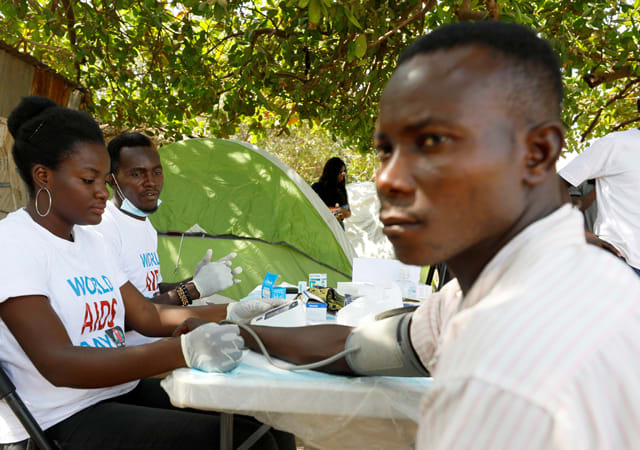Abuja — The federal government has said the country was on the verge of achieving the target of HIV epidemic control.
The Minister of State, Senator Olorunmibe Mamora made the declaration at the formal launch of the National HIV Clinical Mentorship Programme in Abuja yesterday.
The initiative which was part of the activities to commemorate the 2021 World AIDS Day saw various stakeholders, including foreign partners, United States CDC, UNAIDS and Global Fund making commitments to help Nigeria achieve an end to HIV epidemic control in no distant time.
Mamora said the Nigeria HIV control programme had grown significantly in the last five years, with the past two years becoming perhaps the most remarkable because of resilience shown by the programme despite the challenges of the COVID19 pandemic.
“I am especially proud of the progress made in our national treatment programme, with over 1.6 million people now on anti-retroviral therapy. I happy to note that we are firmly on the march to achieving the target of 95-95-95. It is for this reason that I consider the establishment of the National Clinical Mentorship Programme as a landmark initiative for the AIDS response in Nigeria.
“The time of achieving epidemic control of HIV is becoming a reality and a central part of the discourse, transitioning to chronic HIV care, after epidemic control is achieved will require people living with HIV to engage with the healthcare system in an ongoing chronic care relationship for the long-term,” he said.
The minister said clinical mentorship would be critical in ensuring that the target was achieved, adding that it entails building capacity and supporting HIV and care service providers in an integrated manner.
The Director General of NACA, Dr. Gambo Aliyu described the launch of the clinical mentorship programme as the outcome of months of collaborative hard work between the United States government of NASCP putting experiences gained from Zambia and Namibia where such programmes have been tested.
He said the situation in Nigeria had improved from having 800,000 persons living with HIV on treatment to about 1.6 million people placed on regular treatment nationwide presently.
Aliyu, however, said it had become necessary at this point to do a kind of preventive and also professional mentoring so as to ensure standard treatment.
He said the initiative would help end, “health worker related stigmatisation, ensure more patient confidentiality and reduction in non-adherence.
Earlier, the United States Ambassador to Nigeria, Mary Beth, said the initiative was aimed at achieving quality HIV programmes and continuous improvement in line with HIV guidelines in the country. It is designed to draw lessons from clinical mentoring approaches from place across Nigeria, while deepening government’s leadership of the national HIV response. She said since the US began its partnership with Nigeria, achieving an end to the spread of virus has been the main goal.
She said building local healthcare worker clinical capacity could develop a workforce that could lead, manage and monitor the HIV response from within the country’s healthcare system.
She stated further that the mentorship programme would help strengthen the government’s ownership of the HIV programme at both national and state levels this safeguarding a sustained long-term epidemic control of HIV in the country.
She the US CDC has pledged to support the implementation of the mentorship programme in additional 18 states and the Federal Capital Territory FCT, Abuja.
“Today, we have recruited, trained and deployed 90 national mentors to specific cities across the country with additional 46 state-level critical mentors soon to be deployed,” she said.

